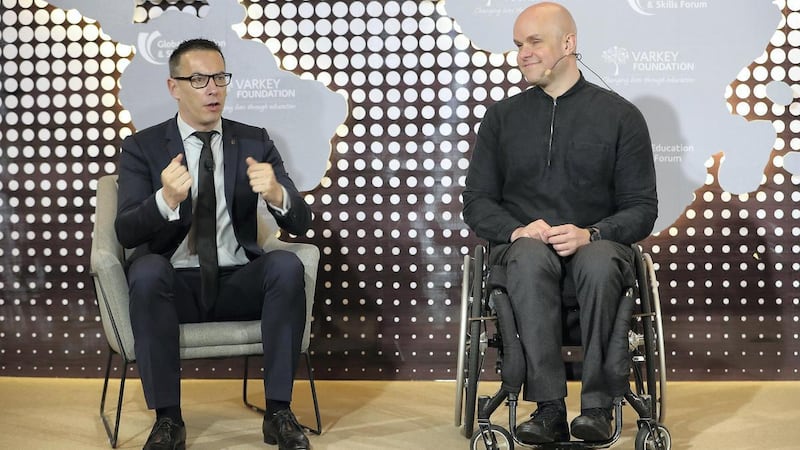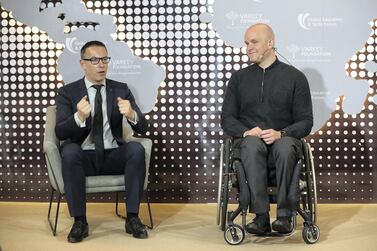A leading neuroscientist is putting his once secret second life as a DJ into the spotlight - to raise vital funds for good causes and help a friend to dance again.
Olivier Oullier, the president of bio-informatics and technology company Emotiv, launched his global charity initiative, DJs4Good, in Dubai recently.
Prof Oullier, a contributor for The National, chose the Global Education and Skills Forum to call on DJs all over the world to get in tune with a charity of their choice.
The entrepreneur has been a disc jockey since his student days when the job helped him pay for his college tuition.
The industry has been good to him and he wants others who take to the decks to follow his lead and give back.
Prof Oullier still DJs at events regularly, donating half of his fee to charity each time, and he is urging fellow performers to help out too.
“DJs are a huge community and they reach a large number of young people every weekend. They have huge power to influence people and no one has leveraged that community and the good they can do," he said.
“In order to promote good initiatives, it’s very important to engage people and dancing makes people happy.
“Not so long ago, no one cared about DJs, now people go to venues to see them.
"Not all DJs can give the entire fee, but even if they give five per cent, it’s good for charities.
“We are launching the global movement and the idea is to convince as many DJs to reach this movement.
“The money will be transferred directly from the person to the organisation they are funding.
"Give money to a charity that makes sense to you."
Professor Oullier chooses to donate to the Mark Pollock Trust started by his friend, who is paralysed and is working to cure his condition through neuroscience.
"I want to help Mark dance again."
Mr Pollock's dream is to walk again and he has turned to Prof Oullier to fulfil it.
Emotiv is developing mobile and wearable, personalised technology that uses brain signals to direct function.
Prof Oullier is working on technology that will replace legs or hands and add greater function.
“I am working with students who created a robotic hand, but the hand can do more than a normal hand. The hand is more powerful than a normal hand and opens more possibilities,” he said.
“It could very well be that robotic legs, thanks to stimulation, will allow Mark to walk. But in the near future he might even be able to jump, and higher than other people.”
For the professor, the DJs4Good initiative is about social impact.
“Until recently, DJs were not thought of as well as other artists like classical pianists.
"Earlier, I had to hide the fact that I was a DJ it because back then it was not as well accepted at the social level. This is why I came up with my stage name Jacques Lavoisier.
"Only in the last 20 years have DJs become superstars, earlier they were just people playing music in a corner.
"We are our own kind of artists. DJs have reached a significant level of fame and they can now leverage this for good.
"My vision for this movement is really to show it is not just about making people dance to great music, it’s also about social impact."








